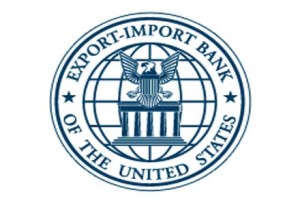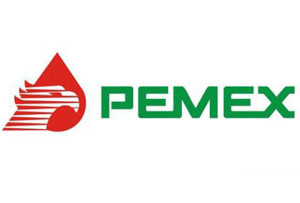 Normally I don’t align myself politically with the Tea Party, but every once in a while wackadoodles have good ideas. So I try to keep an open mind.
Normally I don’t align myself politically with the Tea Party, but every once in a while wackadoodles have good ideas. So I try to keep an open mind.
One of those good ideas is closing the Export-Import Bank, which technically went into ‘liquidation’ on July 1st, although it will most likely be revived by the end of this month.
A group of Republican Congressmen – led by Representative Jeb1 Hensarling from Dallas – managed to block renewal legislation for this Congressionally-mandated bank.
The New York Times reports that the Bank’s Congressional allies (with the support of President Obama) believe they can keep the Ex-IM Bank alive by slipping an amendment into some essential legislation at the end of July.
That’s too bad, as I can’t imagine any good reason to keep it alive, but I do know a couple of good reasons to kill it.
The Ex-Im Bank fight brings together strange allies and frenemies.
Texas Ex-Governor Rick Perry – who never saw a piece of corporate welfare he didn’t support – argues for its renewal. So does Massachusetts Senator Elizabeth Warren, and so does the US Chamber of Congress.
I have few rules in life, but one of them is that if you can take a strong policy stance against Rick Perry, the US Chamber of Commerce, and Elizabeth Warren all at once you’re supposed to do just that.
Why kill it?
Bank supporters argue that other countries subsidize their export industries, so we have to do the same. We can easily dismiss this argument with your cranky grandmother’s old standby: “Well, if all the other kids are jumping off the bridge, does that mean you should too?”
I mean, other countries can choose politically-connected export-subsidy corporate-welfare, but that doesn’t mean we should do the same, right?
The Ex-Im Bank’s website, emphasizes the small businesses they help, and the good American jobs being created.
I don’t know, I’m skeptical.
Let’s start with the jobs part.
If a “good American jobs” company can’t find a ‘good American lender” who finds it profitable to support “good American exports,” well then maybe those products and jobs are not so ‘good’ as they appear. Maybe they depend on taxpayer subsidies and political connections to survive, which strikes me as kind of the opposite of “good American business practice.”
What about the small business part?
In 2013 the top ten loan beneficiaries of the Ex-Im Bank accounted for 64 percent of the bank’s activities.
Another way of saying that is the benefits of this government entity are highly concentrated with just a few companies. Which should make anyone who understands how our political process gets funded very nervous.
An economist would say that the true effect of an organization like the Ex-Im Bank is to shift benefits away from the politically unconnected many and towards the politically connected few.
Can we get an example, please?
Perhaps an example of how the Ex-Im Bank usually works in practice – plus the messy results of that kind of practice – can help illustrate the situation.

Boeing, a large and successful US aerospace manufacturer, is the largest beneficiary of the Ex-Im Bank, accounting for an estimated 30% of all benefits in 2013.
Boeing would like to sell more of its aircraft to foreign airlines. Airlines in India, South Korea and the United Arab Emirates all received $3 Billion in Ex-Im Bank loan authorizations between 20014 and 2013 to facilitate Boeing’s sales. Airlines in Hong Kong, Chile, China, Ethiopia, Luxembourg and Turkey, meanwhile, all received between $1.5 and $3 Billion in authorizations in that same time period, according to Forbes Magazine.
This is all very great business no doubt for Boeing, which can sell more of its planes over the course of a decade. In fact 26% of large commercial aircraft were sold in the 2008 to 2013 time period with Ex-Im Bank funding, according to Forbes.
It’s not necessarily great business for US airlines, however, which have to compete in the long-haul airline business with foreign airlines which are subsidized in effect by the US taxpayer, as those foreign airlines get favorable below-market rates to buy new planes.
This is how it gets messy: It’s easy for the Ex-Im Bank to point to good manufacturing jobs supported at Boeing, but it’s less easy to show the good jobs not created at US airlines being undercut by a publicly subsidized bank.
In fact Representative Hensarling quotes Delta Airlines’ CEO as saying 7,500 US domestic airline jobs have been killed as a result of Ex-Im Bank subsidies to Delta’s competitors.
While that number strikes me as a bit extreme, the airline CEO’s belief at least highlights the mixed blessing of a government entity like the Ex-Im Bank picking winners and losers.
Ex-Im Bank supporters also claim that the bank’s key role is to ensure foreign buyers have sufficient access to capital to purchase US exports.

Ok, maybe, but then why is Pemex – the Mexican state oil company with a $400 Billion market value and no problem accessing capital – the largest single buyer of US exports via an Ex-Im Bank loan in the 2007-2013 timeframe?
I try not be ideological about these things, but I still get my spidey sense tingling whenever a government agency seems to be fulfilling a job that the private markets do quite well.
Is this a big deal?
How big a deal is closing the Export-Import Bank?
Actually, not a very big deal. Really, it’s more symbolic than anything. For the Tea Party, victory would represent a small roll-back of legislation written when worldwide capital was scarce in the 1935 Depression era, following what they see as eighty years of unrelenting government expansion.
And anyway, Hensarling is going to lose. When the Ex-Im Bank gets renewed at the end of July through legislative legerdemain – because Republican leadership of both the US House and US Senate isn’t actually as pro-free markets as they’d have us believe – we’re not all going to suffer that much.
I’ll be mildly annoyed, but I understand the temptation to interfere in picking winners and losers in the marketplace is common to both major parties, dependent as they are on their corporate sponsors.
But I still reserve the right to be annoyed.
One Tea Party Senator famously scorned the Ex-Im Bank as “Little more than a fund for corporate welfare.” Oh, wait, I’m sorry, that was then-Senator Barack Obama, Democrat from Illinois and candidate for President in 2008.
Was Senator Obama right in 2008? I think so.
A version of this post ran in the San Antonio Express News.
Post read (589) times.
- That’s just “Jeb.” Not “JEB!” ↩




